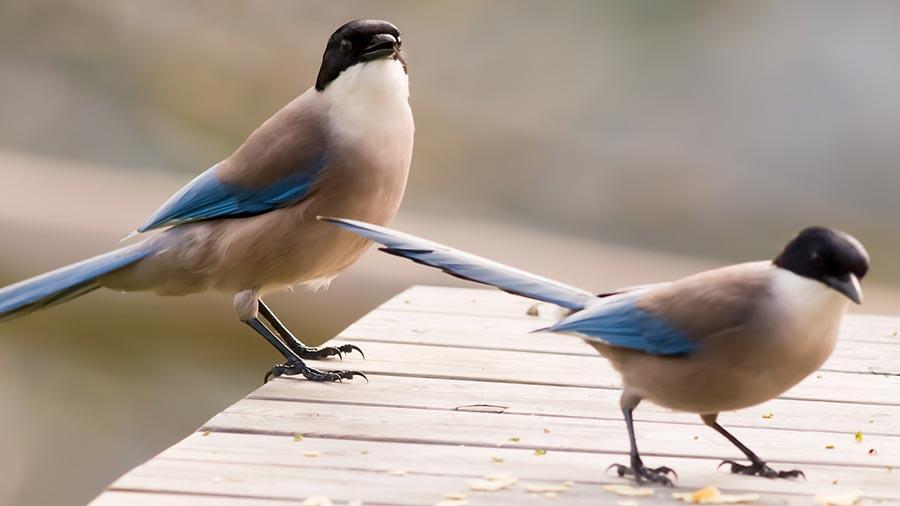Selflessness is a quality which until now had only been appreciated in humans and other primates that work together to care for the offspring.
Known for their tendency to steal shiny objects, some birds of the family of corvids, such as crows, do not enjoy good reputation. They do not seem to gain much sympathy Ravens, although its bad reputation is unjustified. In general, these birds show indifference to their peers or just give something if others plead repeatedly.
However, Asian magpies (azure-winged magpie), another species of the family of corvids, seem to be an exception.According to a research group at the University of Vienna (Austria), these birds provide food spontaneously members of their group without these request it.
“For a long time it was thought that the proactive prosociabilidad -comportamientos favoring other individuals or groups without seeking rewards materials- was very human,” says Lisa Horn, lead author of the study published in Biology Letters.
In the first humans this behavior is promoted with the cooperative parenting, behavior has also been observed in other primates. “But there were still results in other taxa,” says Horn.
very cooperative magpies
Thanks to an ingenious experiment, the Austrian team tested this collaboration in Asians, known magpies to cooperate with each other for the rearing of chickens.
Dwell on a perch, birds activated a seesaw carrying food to the members of his group. If birds perch had wanted to take the food themselves, they had to leave, but the rocker with food fall back making the food stay out of reach.
With this mechanism, scientists realized that still do not have access themselves to the food, Asian magpies kept alighting on the rack and distributing food to their peers in all sessions, at levels of cooperation equally higher than those observed in primates.
In fact, according to work, the birds only activated the device when individuals in your group could get the food, and not on other control conditions in which they had blocked access to food.
“Our results appear to support the hypothesis that raising chickens cooperatively may have promoted the development of prosocial tendencies in other animals, and not only in humans. But we need more tests with birds that do not cooperate with each other, “concludes the researcher.
Source: SINC











